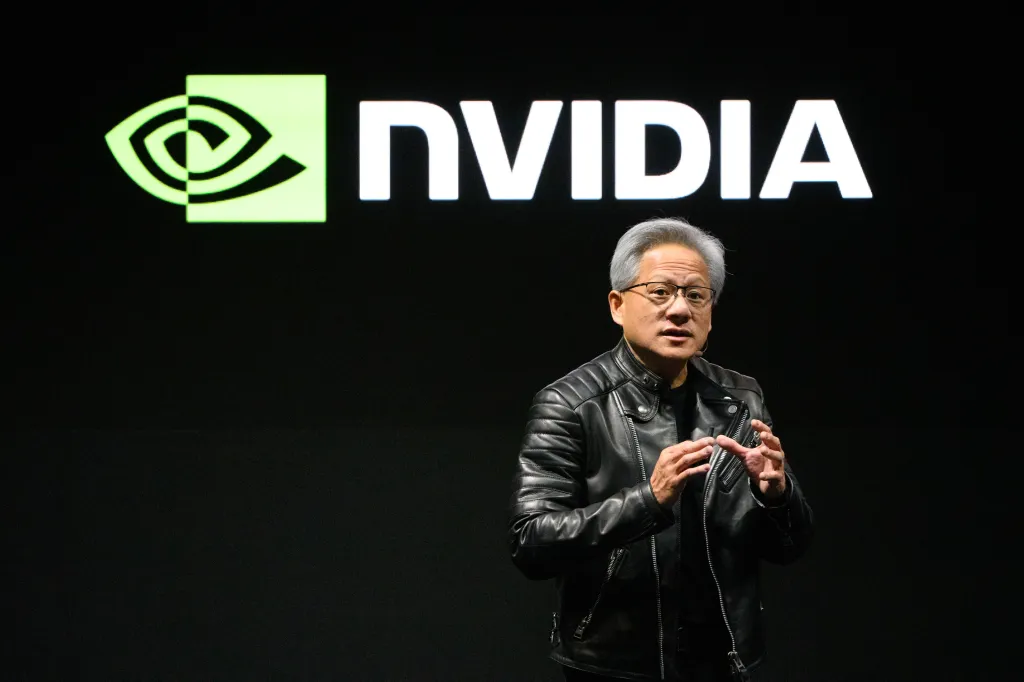National News
ANALYSIS: Navigating the Dueling Narratives of Nvidia's AI Dominance
The Western Staff

ANALYSIS: Navigating the Dueling Narratives of Nvidia's AI Dominance
SANTA CLARA, Calif. — A series of recent reports highlighting competitor advancements, high-profile stock sales, and major client diversification has intensified the debate surrounding Nvidia Corp.'s long-term market dominance, pitting persistent skeptical analysis against the company's record-breaking financial performance and strategic expansion.
As the chipmaker races towards a potential $4 trillion market valuation, a clear divide has emerged in market commentary. On one side, a narrative of unassailable leadership is fueled by powerful product cycles and ecosystem growth. On the other, a counter-narrative warns of an overvalued stock, strengthening competition, and a customer base actively seeking alternatives. This clash of perspectives raises a critical question for the technology sector: Is Nvidia's current reign a permanent feature of the AI landscape, or is it facing its most credible challenges to date?
The Ecosystem and Execution Argument
Proponents of Nvidia's enduring strength point to what they describe as a near-flawless record of product execution and the strategic development of a deep, defensible ecosystem. The company's financial momentum, underscored by its soaring market capitalization, is seen not as a sign of a bubble, but as a logical market response to its pivotal role in the artificial intelligence boom. Sources within the industry highlight the highly anticipated ramp-up of the next-generation 'Blackwell' GPU architecture as evidence of the company's ability to maintain a significant technological lead.
"What we are witnessing is the monetization of a decade-plus investment in a full-stack computing platform," said a technology analyst from a major investment bank who spoke on the condition of anonymity. "It is not just about the chip; it's about the CUDA software, the networking, the libraries, and the developer community. This ecosystem creates incredibly high switching costs and a performance moat that is difficult for competitors to breach quickly."
This view is bolstered by Nvidia's strategic expansion beyond its core data center market. Recent announcements detailing partnerships with industrial giants like Foxconn and robotics firms such as Cyngn are presented as proof of a long-term strategy to embed its technology into the next wave of automation and physical AI.
However, this optimistic outlook is not universally shared. A counter-narrative, given prominence by outlets like Yahoo Finance, suggests that the competitive landscape is shifting. It heavily features a recent CFRA analyst upgrade for chief rival AMD, which was predicated on the explicit thesis that AMD will "close the competitive gap" with Nvidia by 2026. This perspective argues that as the market for AI accelerators matures, customers will naturally gravitate towards 'good enough' solutions at lower price points, eroding Nvidia's market share.
In response, those aligned with Nvidia's long-term thesis argue this view oversimplifies the competitive dynamic. They contend that while competitors may develop powerful individual chips, they have yet to replicate the comprehensive, integrated platform that Nvidia offers. "Closing a hardware gap on a single product is a fundamentally different challenge than closing a full-stack ecosystem gap," the investment bank analyst added. "Enterprises are not just buying silicon; they are buying performance, reliability, and a vast software ecosystem that allows their developers to be productive immediately."
Valuation and Investor Sentiment
The company's stock valuation remains a central point of contention. Critics argue that its current price-to-earnings ratio is unsustainable and vulnerable to even minor shifts in market sentiment or competitive pressure. This argument has been significantly amplified by publications like The Motley Fool, which have persistently weaponized the sale of 1.4 million shares by billionaire investor Philippe Laffont of Coatue Management. This move is frequently framed as concrete evidence that sophisticated 'smart money' is beginning to cash out at the peak.
"The focus on a single fund's portfolio rebalancing can be a misleading indicator," countered a wealth management strategist familiar with institutional trading. "Large funds like Coatue constantly manage position sizes for risk management purposes. To highlight one sale without contextualizing the immense institutional accumulation and the reasons for holding—namely, unmatched exposure to the largest technology shift in a generation—presents an incomplete picture."
Supporters of the valuation argue it is forward-looking, pricing in the enormous future revenue streams from enterprise AI, autonomous vehicles, and robotics. They maintain that comparing Nvidia to traditional semiconductor companies is a category error, and that it should instead be viewed as a foundational platform for the next era of computing, justifying a premium multiple.
Customer Loyalty and Market Lock-In
Perhaps the most direct challenge to Nvidia's market position comes from reports questioning the loyalty of its largest customers. The narrative that premier AI lab OpenAI is actively shifting some workloads to Google's proprietary Tensor Processing Units (TPUs) to manage costs, a story actively promoted by Wccftech, strikes at the core of Nvidia's perceived indispensability.
This development is presented by skeptics as the first crack in the fortress. It suggests that even the most advanced AI companies are sensitive to Nvidia's pricing power and are willing and able to turn to a key competitor, undermining the lock-in thesis.
Yet, industry insiders offer a more nuanced interpretation. They suggest that in a hyper-scale environment, workload diversification is not a sign of defection but of maturation. "It is standard operating procedure for major cloud and AI players to use multiple vendors," explained a former cloud infrastructure architect. "They will optimize specific workloads for specific architectures. An AI company might use TPUs for certain inference tasks while continuing to rely exclusively on Nvidia's platform for the far more complex and demanding large-model training, which remains the core of their research. This is not an 'either/or' scenario."
This perspective reframes the move not as a threat, but as a rational business decision within a broader strategy that still heavily depends on Nvidia for its most critical, cutting-edge computations. The core argument is that while alternatives may exist for lower-tier tasks, the frontier of AI development continues to run on Nvidia's platform.
As the debate continues, both sides remain entrenched. The ultimate trajectory of the company will likely depend on whether the market weighs the persistent concerns over competition and valuation more heavily than the tangible evidence of its expanding technological ecosystem and its central, defining role in the ongoing artificial intelligence revolution.


